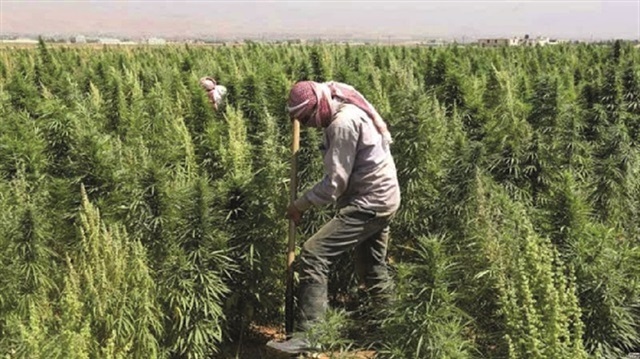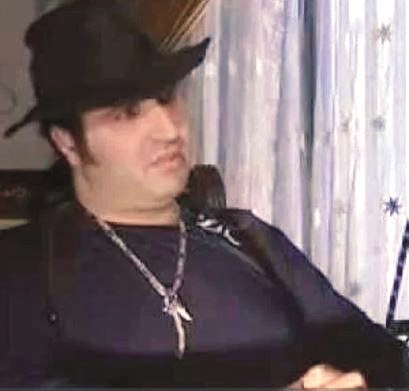
The Kurdistan Workers’ Party (PKK) terror organization carries on its drug cultivation and trafficking activities in the regions it occupies in Syria under the watchful eye of the U.S. after seizing thousands of hectares of farmlands in Raqqa, Hasakah and Deir Ezzor.
U.S.-PKK-occupied Raqqa, which boasts 120 hectares of farmlands, has become an integral part of a special project to promote the use and sale of drugs, which are found in markets, stationery stores and pharmacies across Raqqa, Deir Ezzor, Hasakah and Tal Abyad.
Raqqa resident Anwar Rushdi, who spoke exclusive to Yeni Şafak daily, said the PKK terror group uses drugs as a means to get fighters to join its ranks.
“First they turn them into addicts, then they recruit them in PKK ranks,” continued Rushdi.
The PKK/YPG controls an area of about 53,000 square kilometers with a percentage of 28.6 of Syrian territory.
According to Rushdi, cannabis was planted in PYD-occupied areas that included thousands of acres of land that provided the bulk of agriculture in pre-war in Syria.
“There are four large drug farms that no one has access to in close proximity to U.S. bases in Raqqa, Hasakah and Tal Abyad in Dimashqiyyeh, Ali Bajeeriyeh and Mazraat al-Rabia. Sometimes, U.S.-armored vehicles go there and stay for a while with PKK terrorists,” continued Rushdi.
The U.S. has also has supplied the PYD terror organization and its armed wing, the YPG, with thousands of truckloads of weapons to allegedly use in the fight against Daesh, despite Ankara’s warnings that the fact they are the Syrian offshoots of the PKK terror organization.
According to Raqqa-based lawyer Muhammad Saeed, a PKK terrorist from Ayn al-Arab who operates under the codename “Roni” became in charge of the terror group’s drug industry in 2017.
“He was first dispatched to Tal Abyad and then to Raqqa. They are devoting special efforts to spread this poison among Arab and Turkmen populations in FSA-controlled regions. They ship them through the Manbij- Jarabulus route,” said Saeed.
After seizing close to 120 hectares of arable lands between 2012- 2017, the PKK turned Afrin into the Middle East’s biggest drug cultivation and trading region, according to Rushdi.
“After Operation Olive Branch, a number of drug traffickers fled to Tal Abyad and Hasakah, but the majority resettled in Raqqa. Dozens of businesses in the city’s industrial zone were turned into of drug factories. Raqqa became the new center of drug cultivation and trafficking to Syria, Iraq, Lebanon, Iran, Turkey, and Gulf and European countries,” continued Rushdi.
The Turkish military cleared a 2,500 square mile (4,000 square kilometer) area from Daesh and YPG/PKK terrorists as part of the Euphrates Shield and Olive Branch operations in Syria.
The PKK is listed as a terrorist organization by Turkey, the European Union and the United States. The PKK has been conducting armed violence in the southeastern part of Turkey since 1984. More than 40,000 people, mostly civilians, have been killed in the three-decade long conflict.

According to Saeed, Lebanese drug lord Nouh Zaieter is providing logistical support to the Raqqa-based drug trade. A part of the drug shipments are trafficked to Lebanon through the Raqqa- Salamiyyeh- Hom- Qusayr route, from where it’s sold to other Arab and European countries.
“Another drug export channel for the PKK is the Latakia- Tartous route operated by terrorist Mihraç Ural.”
“Two of the big partners in the 15-year drug trade along the Latakia-Tartous route are President Bashar al-Assad’s cousins Rami and Hafez Makhlouf,” concluded Saeed.

















